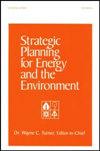基于建筑环境模拟设计平台 DeST 和气象数据分析算法的建筑能耗预测与管理
Q3 Environmental Science
Strategic Planning for Energy and the Environment
Pub Date : 2024-01-14
DOI:10.13052/spee1048-5236.4328
引用次数: 0
摘要
目前,建筑能耗所产生的碳排放占所有碳排放的很大一部分。如何减少碳排放,实现碳中和是当前重要的研究方向。因此,本研究利用 DeST 平台建立了一个气象建筑能耗数据分析预测算法模型,用于节能减排,实现碳中和。新模型利用物联网和云平台技术构建仿真建筑平台,在分析算法中采用支持向量机算法对建筑能耗数据进行向量化处理,可实现建筑能耗和气象数据的归一化处理。通过对建筑能耗数据的处理,可以实现对下一时刻建筑能耗的预测。实验结果表明,新算法的精度和准确度分别比遗传算法高 1 和 0.15,比聚类分析算法分别高 0.6 和 0.07。因此,将该算法模型应用于建筑能耗预测,可以显著提高算法的准确性和精确度。本文章由计算机程序翻译,如有差异,请以英文原文为准。
Prediction and Management of Building Energy Consumption Based on Building Environment Simulation Design Platform DeST and Meteorological Data Analysis Algorithm
Currently, the carbon emissions of building energy consumption account for a significant portion of all carbon emissions. How to reduce carbon emissions to achieve carbon neutrality is an important current research direction. Therefore this research builds a predictive algorithm model for analyzing energy consumption data of meteorological buildings using DeST platform for energy saving and emission reduction to achieve carbon neutrality. The new model uses Internet of Things and cloud platform technology to build a simulation building platform, and uses the support vector machine algorithm in the analysis algorithm to vectorize building energy consumption data, which can achieve normalization processing of building energy consumption and meteorological data. By processing building energy consumption data, prediction of building energy consumption at the next moment can be achieved. The experimental results show that the precision and accuracy of the new algorithm are higher than genetic algorithm 1 and 0.15 respectively, and 0.6 and 0.07 higher than clustering analysis algorithm respectively. Therefore, applying this algorithm model to building energy consumption prediction can significantly improve the accuracy and precision of the algorithm.
求助全文
通过发布文献求助,成功后即可免费获取论文全文。
去求助
来源期刊

Strategic Planning for Energy and the Environment
Environmental Science-Environmental Science (all)
CiteScore
1.50
自引率
0.00%
发文量
25
 求助内容:
求助内容: 应助结果提醒方式:
应助结果提醒方式:


